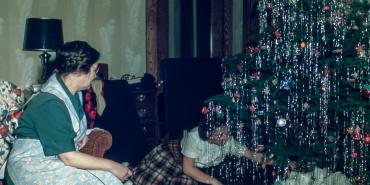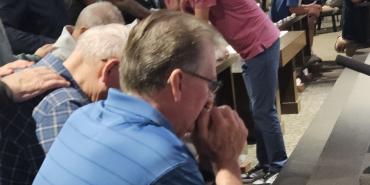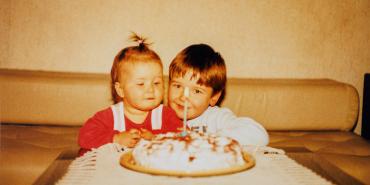Q&A with Regional Communication Coordinators

Doug Flemming, Brad Firestone, Peet Voges, Jan Weisen, and Todd Edgerton
HT: What is the purpose of a regional communication center?
Peet: The purpose of our communication center is to be a valuable resource to the different ministries on the region by helping them with video projects, graphics, posters, and more.
HT: How do you make what you do appropriate for the many cultures represented on your regions?
Brad: Having a center on each region allows us to be much more culturally sensitive and relevant to the people that we're trying to serve. Material created in one part of the world may not work well in another. By being diversified around the world, we're able to pinpoint our ministry efforts so they are most effective.
Jan: All regions are trying to have nationals produce materials in their own languages. A huge challenge is that a large part of our population is pre-literate"they can|t read or write. Yet churches are being planted among these people, which means that pastors have to be trained and laypersons educated.
Doug: Sometimes it's not just the content, but also the delivery. On the Asia-Pacific Region cell phones are very prevalent. So we utilize what we call "SMS," or text messaging. We use it for initial communication, follow-up, and correspondence. Being aware of the kinds of communication mediums that people use is part of cultural sensitivity and the contextualizing process. In the tribal areas, we have to be aware that they are an oral people. What is needed may not be radio or television, but drama and story-telling.
HT: Why are you doing what you're doing?
Jan: It's not a call to the broadcast ministry—it's a call to follow God. Each one of us was doing something else before we moved into these positions. Who knows what tomorrow or next week may bring? Anyone of us could get a call from God that says, "Well done. Now I need you in a different part of the battle." Our responsibility is to follow the call of God.
Brad: Every day, I feel privileged to be able to do the things that I love and to have them make an eternal difference. I have done this work in a secular field before and found something lacking at the end of the day, wondering whether I really made a difference in someone's life.
Todd: God didn't call me to make money and probably didn't gift me in that area either. But the gifts that He has given me are His and they're for His glory. He's put me where He wants me to work. I'm just very happy to make a difference in His master plan.
Peet: The Lord called me out of an engineering background into the ministry. When the opportunity came to be involved in communications ministries in 1997, I said "yes" to Him and it's been a fulfilling ministry that has brought me much joy.
Doug: I feel called to this ministry. The motto on our region is "Communicating Christ by all means possible," taken from 1 Corinthians 9:22. The Great Commission is still the Great Commission and there's so much to do to accomplish it. By using media, we can speed up the process and assist the church.
HT: Explain how the message of Good News stays the same although the medium may change.
Brad: One of the classes I took in seminary taught me that on the mission field I needed to be looking to carry the seed of the Gospel and plant it wherever I was going. We strive to remain true to the Gospel. But we're willing to plant it in whatever kind of dirt there is if it will let people experience the truth of the Gospel.
Jan: Christ told His stories orally. After His death people started writing things down. Although things have changed and technology has progressed, it's still just a tool. Regardless of what tool we use, we have to use it appropriately.
Peet: When television came to South Africa in the late 70's, the church didn't embrace it. But today most homes contain two or more televisions. We as a church need to stay with the development that we find in our world if we want to reach all the groups that God has called us to.
Todd: If we took a snapshot of the religious culture when our church was founded and applied those cultural norms to the church today, we'd find a lot of things that wouldn't be acceptable. There are groups founded several hundred years ago that still don't use motorized vehicles or electricity because they don't want to be corrupted. But I believe that God is calling us to harvest souls with all the tools that He has given us.
Holiness Today, July/August 2005
Please note: This article was originally published in 2005. All facts, figures, and titles were accurate to the best of our knowledge at that time but may have since changed.




